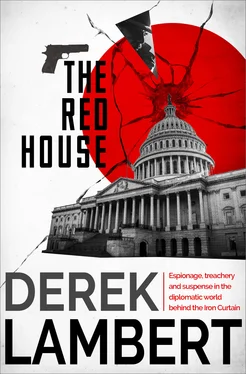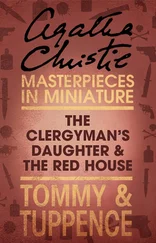1 ...8 9 10 12 13 14 ...17 Again he was intoxicated by the profusion of merchandise. Broad silk ties, corduroy and soft suede jackets, fragments of lingerie, shirts which only homosexuals outside the Bolshoi in Moscow would have worn, novelties, Valentine cards already, drapes, perfumes … The disinclination to spend was still strong in him; but his arms were growing longer, his pockets shorter.
In Hechts Vladimir Zhukov, uncomfortably aware of his styleless clothes, bought a wide silver tie lined with blue satin and a broad leather belt with a peace buckle, designed to hold up nothing (except, perhaps, a slumping belly) but which might come in handy for beating a wife. Or vice versa.
The young man who served him confided that the belt might be the basis of a new image for Zhukov. ‘We don’t want to draw attention to the approach of middle-age, do we, sir?’ He withdrew his hand from Zhukov’s sweating nylon shirt with alacrity.
Outside Zhukov observed the droppings of soiled snow—and heard the scrape of old women’s shovels on the sidewalks of Moscow.
He climbed into his stone-coloured Volkswagen and drove to a supermarket. Its cornucopia was the biggest shock of all. Not just the frozen, packaged, price-cut, sliced, chopped, condensed, fortified, concentrated, dehydrated, evaporated, regimented, abundance of it all. No, it was the permutations: the calculating ingenuity of choice: simple selection grated hopefully into shreds that might appeal to different ages, sexes, races, colours, types. An indulgent carve-up of what had once been ordinary shared hunger.
Take olives, for instance. Not particularly favoured by Vladimir Zhukov; nevertheless the pure stony fruit of history, to be eaten with goats’ cheese beside a hill where shepherds rested under the olive trees’ undistinguished branches. Here, in an avenue of cartons and deep-freeze troughs, they rested in specimen bottles: black salad olives, manzanilla olives stuffed with sweet peppers, water, salt and lactic acid, pitted olives, Spanish olives stuffed with pimentos, giant Californian olives …
Influenced as always by old movies, Vladimir Zhukov had always fancied orange juice with his breakfast—prior to coffee and toast and kidneys served from a silver platter. But perhaps he was old-fashioned. Frozen concentrates of lemonade, pink lemonade(!), grape, apple, iced tea, Hawaiian punch, peach, peach and orange. And there at the end of the surgical trough the cold cylinders of pure frozen orange juice.
He walked away with nothing, selectivity battered senseless.
But I will buy some sausage, he thought. The sausage that as a student I used to wolf between dry bread while the vodka bottle circulated. Bologna, liverwurst, salami, turkey salami, blood and tongue, corned beef, chicken loaf, olive loaf, hot Italian loaf …
‘Some sausage, please,’ he said to the scrubbed young man in the chef’s hat.
‘What kind of sausage?’
‘Any kind.’
‘You got to make the choice, buddy. It’s you that’s eating it, not me.’
Zhukov pointed wildly at a gnarled pink forearm of meat.
‘How much do you want?’
Zhukov indicated with his hands—‘About that much’—popped the sausage into his still-empty shopping cart and hurried away to rally his powers of choice beside the mixes—whisky sour, pussycat, daiquiri, gimlet, cranbreaker, bloody Mary and Tom Collins—stacked beside root beer, birch beer, spruce beer, grape soda, black cherry soda …
He rested there, drunk with choice, as Nicolai Grigorenko hove past, his basket-on-wheels stacked high with decadence.
‘Greetings, comrade,’ Zhukov said, sanctimonious about his single tube of sausage.
Grigorenko turned as quickly as a man going for a gun. Alarm, suspicion, menace; then a blush of guilt on his drooping face. But he attacked just the same. ‘What are you doing here, Comrade Zhukov?’
‘Observing the fleshpots of Capitalist degeneracy. And you, comrade?’
The Growler faltered. ‘Just doing a little shopping for one of the counsellors.’ Inspiration assembled slowly. ‘He’s giving a party for some French diplomats. You know how they like to eat,’ he added hopefully.
‘I do indeed, comrade.’ He appraised Grigorenko’s basket of loot. ‘How will the counsellor serve aerosol shaving cream?’
‘That is for the counsellor himself. It is his only weakness.’
‘If American shaving cream is his only weakness then he is a very fortunate man.’
Grigorenko nodded heavily, already planning further explanations and revenge. But for the time being I’ve got you on the defensive Zhukov thought with satisfaction. It was quite an achievement to score over an officer of the K.G.B., however slight the indictment.
He picked up a small cardboard canister from Grigorenko’s pile. ‘Lemonade, eh? Another Gallic speciality?’ He read the label and smiled. ‘I’m pleased to observe that it is pink lemonade, Comrade Grigorenko.’
Grigorenko growled and departed. With an easier conscience Zhukov began piling many permutations of decadence into his own basket. Starting with chunky blue cheese dressing.
The Embassy was jumping but the ambassador didn’t jump with it. He had survived too many international crises in his 16th Street kremlin to be over-excited by the seizure by the North Koreans of the American spy ship Pueblo; besides he had a heart condition.
The trick was to smooth each crisis into the day’s working routine that began at his desk at 8 a.m. and finished at midnight. Never agitate yourself—particularly in public—like Khrushchev or a senator exposing corruption: composure was one of the essences of diplomacy, even if it wasn’t always appreciated by the hawks of Moscow. But Soviet diplomats were at last learning the sophisticated approach, and he, Valentin Zuvorin, considered that he had overtaken the Americans in the delicate art. A smile, a half-truth, a witticism: a swift rapier thrust of assertion through lowered defences. Thus one President had been moved to call him a liar, another had told him to ‘quit horsing around.’ Small victories of behaviour—even if policies had been defeated.
Zuvorin picked up the phone in his high-ceilinged, somewhat Czarist office, and called the Press Counsellor. ‘What’s Moscow putting out on the Pueblo affair?’
The counsellor began to read a Tass report of an article in Izvestia. There was the usual line on American aggressive intent and expansionism plus a suggestion that the American President was using the incident as a pretext to call up reserves for Vietnam.
‘Thank you,’ Zuvorin said, as the predictable tirade continued.
‘But …’
Zuvorin hung up. Competent of its kind and ineffectual. The language of protest blunted by repetition. Even the outrage over Vietnam had lost its impact, like the lingering atrocity of the war. If only the propagandists would seek some diplomatic style.
He sipped his lemon tea and scanned the dispatches from Moscow. Aid pouring into the Arabs who would squander at least half of it; such waste because of political necessity. During the Six-Day War Zuvorin had privately enjoyed some of the jokes. ‘Come to Israel and see the pyramids.’ He smiled again now: you had to admire the flyweight prize-fighter felling the heavyweight. The rapier over the machete. Not that Valentin Zuvorin doubted the Kremlin policy in the Middle East because ultimately it would be a victory for Socialism. And he believed steadfastly in Socialism.
And now Czechoslovakia. Antonin Novotny had been ousted from his post as first secretary of the Party—a job he had held for fifteen years. Soon I shall have to lie again and eventually my lies will be exposed. Because the Czechs will try to break away and they will have to be taught a lesson. Zuvorin admired their spirit; but, sadly, blood had to be spilled, tissue destroyed, in the ultimate surgery on Mankind.
Читать дальше












